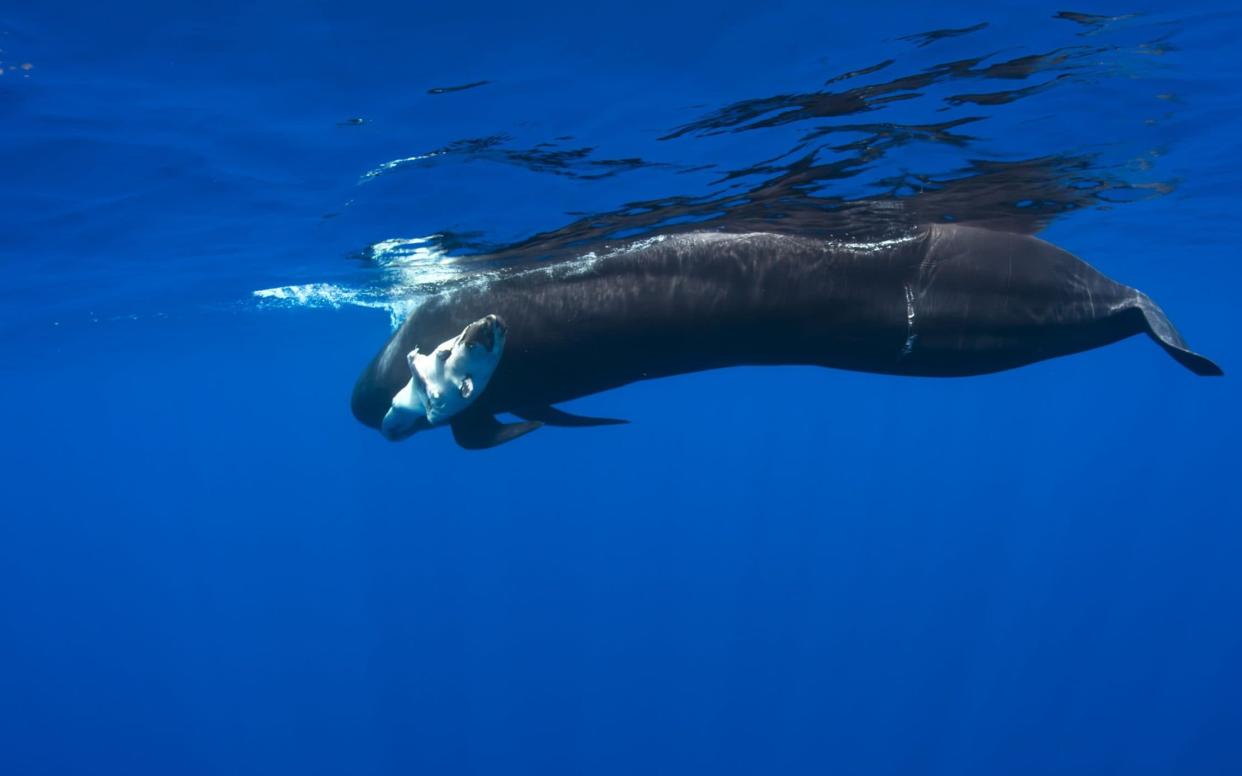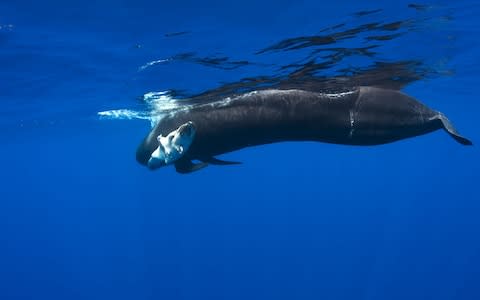Five shocking facts about the scale of plastic pollution that's choking our seas

Billions of plastic stirrers, straws, cotton wool buds could be banned as early as next year, the Government will announce today as part of a bid to rid the world of single-use plastic.
Plastics now dominate modern human life, with many throwaway or single-use products such as drinks bottles, nappies and cutlery, ending up in the natural environment.
The ban, which will be timed to call on all other Commonwealth countries to join in the fight against plastic pollution, could be in place by next year in order to reduce the 44 billion plastic stirrers and 42 billion plastic straws used by Britons every year.
The pollution issue captured the public's imagination following the final episode of the BBC's Blue Planet II, which showed the devastating impact of humans on the world’s seas, the spotlight has been placed on the scale of destruction caused by excessive use of plastics. Over the course of the series, Blue Planet II highlighted the tragic impact this waste is having on marine life, with whales seen to be dying from toxic levels of plastic-related pollution.

There are 6.3 billion tonnes of plastic waste on Earth
Even though plastic has around been around for the last 60-70 years, the material has dominated the way in which we conduct our lives, taking a crucial role in everything from clothing, cooking, engineering and product design.
Because of this, the rate at which we are producing plastics has accelerated; there is now billions of tonnes of plastic on Earth.
A report in Science Magazine estimates that 8.3bn tonnes of plastic has been produced to date. Of this, 6.3bn tonnes of plastic is now waste – a majority of which, some 79 per cent, is in landfill or the natural environment.
Billions of tonnes of plastic have accumulated
Plastic will outweigh fish by 2050
David Attenborough warned in this week's Blue Planet that "the oceans are under threat now as never before in human history".
Looking at the data, it's hard to come to a different conclusion. It is estimated that there is now a 1:2 ratio of plastic to plankton and, left unchecked, plastic will outweigh fish by 2050.
Currently, the amount of plastic in the oceans is estimated to be about 150 million tonnes – that's roughly a fifth of the weight of the fish.
Plastic in the ocean will match the weight of fish by 2050
A nappy will be on Earth five times as long as the baby it helps
One reason why plastics are so commonly used is due to the fact that they're designed to last. This means that most of the plastic we've created still exists in some form today, leaving it to plague our natural environment.
Many of us would forget about a nappy the second it gets put into a bin – but that nappy will stay on Earth for 450 years, which is over five times the average life expectancy of someone in Britain.
Fishing line, which poses dangers to sea life, takes an even longer time to biodegrade. It is estimated to stay on Earth for as long as 600 years.
Plastic bottles and nappies take 450 years to biodegrade
For every 100m of British beach, there are over 200 plastic or polystyrene items
Plastic waste also ends up on the beaches that millions of us enjoy every year.
Almost 7,000 people took part in the Great British Beach Clean in September 2017 - a project that removed 255,209 pieces of litter from 339 beaches.
Read more | Plastic pollution
It found that there were, on average, 718 pieces of rubbish for every 100m stretch of beach the team cleaned – marking a 10 per cent rise on last year.
Tiny bits of plastic were the most common items found, with 225 pieces found for every 100 metres. The group stated that "litter from foods and drinks, usually used just once and thrown away, made up at least 20pc of all of the rubbish we picked up".
Plastic and polystyrene items litter British beaches
We are selling 20,000 more bottles every second
One of the biggest contributors to plastic pollution is drinks bottles. Some 480bn plastic bottles were sold globally in 2016 – more than one million per minute.
The UK Government is currently considering ways to manage this consumption to make it more sustainable.
Some proposals include deposit-return schemes and better free-drinking supplies in cities.
Plastic Bottle counter

